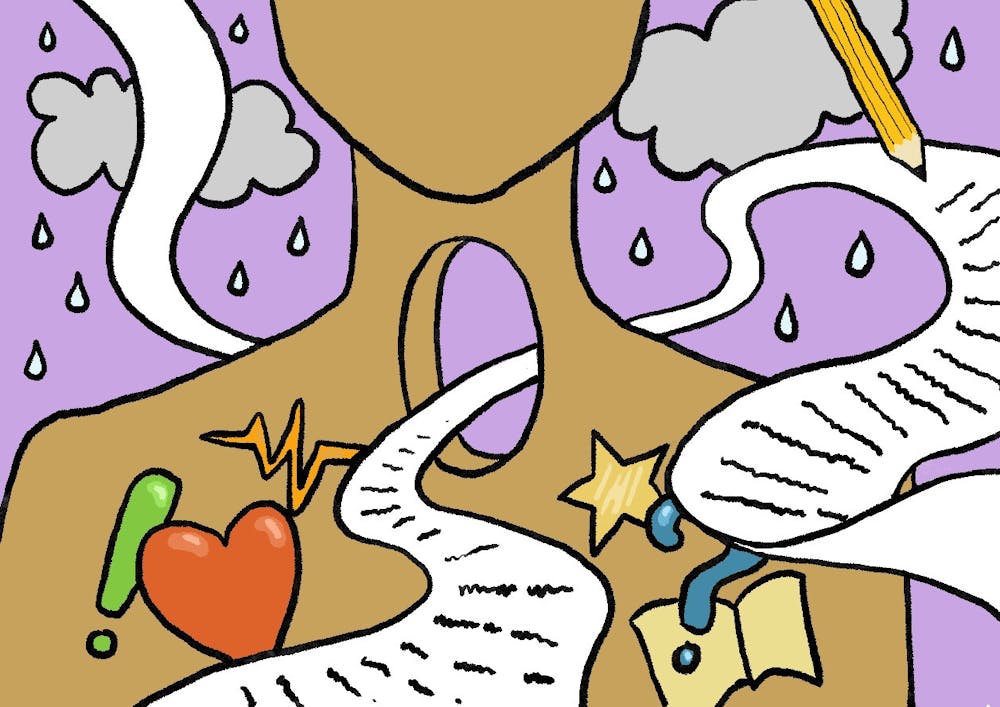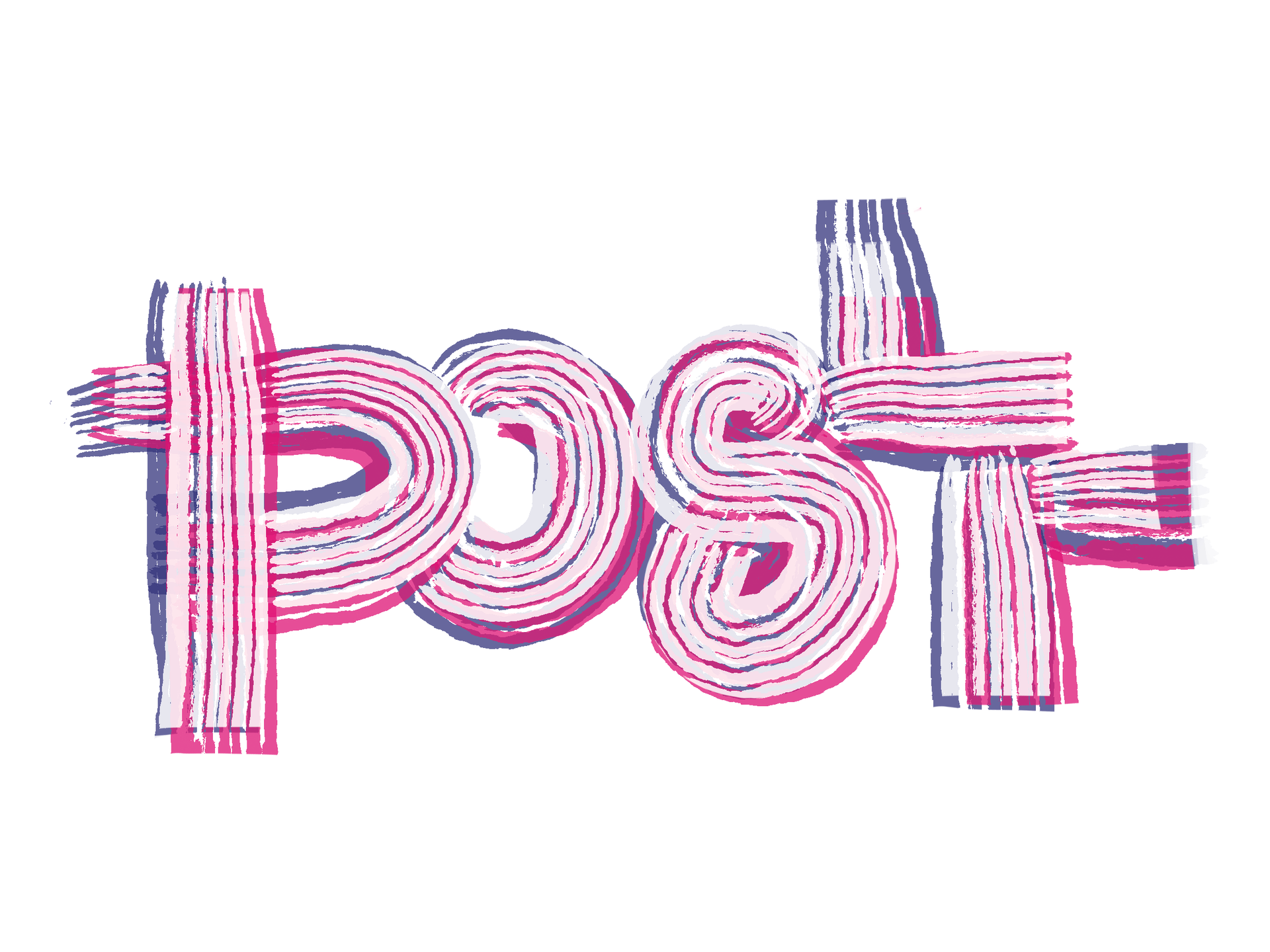Your first therapist is for a speech delay. She feeds you sentences and you regurgitate them back to her. She makes you drop pennies into a mason jar. She teaches you animal sounds, fills the house with oink and moo. After a few months, she leaves, and your voice stays.
But once you learn to name things, you will also learn to fear the unnamed things. Only when you learn the word horizon did it become unreachable. Only when you learn the word love does it begin to tighten like a noose. You watch the sun sink into the sea—the sky becomes a bloody cut—and you hate knowing how small you are. Your house in the mouth of the volcano, long extinct.
From here, you can see everything: the sand dunes rising from the skin of the earth like vertebrae, the crescent of foam where the water meets the land, the calm breaths of the ocean. Your fingers are wrinkled, rubbed raw from climbing the rocks. In the distance, the highway snakes through the valley like the vein of a stone giant, the sound of traffic a distant hum. Drops of water gather on your eyelashes like pearls. You can taste the ocean, its salty kiss on your lips. You are thirty feet in the air, where the wind prickles your neck, and it is the closest to heaven you have ever been. Do not jump into the ocean; just let yourself fall.
[As if you do not already know the feeling. As if writing about it in the second person would fool anyone. Gravity is a fish hook in your navel, pulling you under. You fall through a series of identical days, through the space between two mirrors facing each other, reflecting nothing, endlessly. You see yourself as a 3D image but without the right glasses: red and blue outlines, slightly offset. The feeling waxes and wanes, so when it is fading, it is also returning. You are an unfinished meal. You never say any of this, of course. The doctor gives the feeling a name anyway, and you swallow the diagnosis like a pill.]
That is, until the sickness begins in full. You vomit in a trash can before homeroom. You vomit in a storm drain, outside the school gym, before the Founder’s Day assembly. You vomit in the car one morning, into a plastic grocery bag. Your mother calls the doctor and asks for a referral to a psychologist.
Ocean Vuong claims it is always October in his throat. You do not understand most of his poetry, but you understand this. The way it feels to have your vocal cords turn to rust. To be on the brink of a bitter winter but never reach it. Falling, but never hitting the ground.
You find the poem in your school library. On the wall, the librarian has tacked up a poster: BAD THINGS DON’T HAPPEN TO WRITERS; IT’S ALL MATERIAL. You decide that nothing bad has ever happened to you, as long as you can turn it into art.
So you devour Ocean Vuong’s poem. You collect all of Anthony Doerr’s novels. You scrawl Karen Russell quotes into your journal. When you finally get your driver’s license, you go to Barnes and Noble and buy Hanya Yanagihara’s newest book. If language is an art, you want to become an apprentice.
In your junior year of high school, you write a short story for your World Literature class. It is about a man who goes to hell. As punishment, he sees every person who he has ever loved—his mother, his best friend, his wife—but he cannot speak to them. Your teacher leaves a red-ink tattoo at the bottom of your paper: You would do well as an English major. The words curl off the page like flower petals.
So you become the writer. Or, at least, you try. You join the Spoken Word club and recite poetry aloud to near-empty rooms. You send your short stories to friends and they do not read them. You enter writing contests and you lose. Still, you keep trying because it is the only thing you know to do. You can convince yourself that this is coping rather than escaping.
You talk to the therapist (But that’s a feeling. Yeah. I know. Thoughts become feelings become actions. So what thoughts lead you to feel sad? Stress? That’s another feeling. Oh. Right. So what thoughts lead to that feeling. It’s not a thought. It’s just a feeling. I don’t know. Okay. So how do you deal with it. The sad? And the stress. I like to read. That helps you relax? Yeah. Before bed, usually. See? Feelings lead to action. So you already have one way to manage your stress. Mm-hmm. So what else? Have you tried writing about it? Like, in a diary? Sure. Um. I don’t know. Sometimes putting things into words can help. Like, using language to process things. Oh. I mean, I’ve tried. But usually it just makes me feel worse.), and you learn that there are things you cannot learn from your writing after all.
You are in the dining hall, hunched over a bowl of overnight oats, when K says, But writing isn’t language.
You and K are starting your first semester of college classes, both of you in awe at how much you’re learning. You spend breakfast passing knowledge across the table like salt, as if knowledge is a luxury that must be rationed. You are telling K about your Latin class, the masculines and the feminines and the transitives and the translations, always the translations. She is telling you about her linguistics class.
Writing is a symbol of language, K is saying. But it isn’t actually language.
At first, you think she is making an unnecessary observation. Why should it matter, you want to ask, what a language is if we already know how to use it. But when you see the world in its yellow leaf for the first time, you realize that you are happy, also for the first time. The feeling is a welcome foreigner. It is liquid gold in your chest. It is pumping yourself full of helium, like a birthday balloon. It is stabbing a needle through a burlap sack and seeing light peer through the hole. It is It is It is.
You do not know how to describe the way you feel. You, who have always feared unnamed things, have no choice but to leave the feeling unnamed. You have a feeling that you cannot write about. And what is writing if not a translation of feeling. What is translation if not imperfect.
Maybe K is right. Maybe she should have taken it even further. Maybe she should have said that, although every word you write is an approximation of something real, that does not make it real itself. A hyperbola approaches its asymptote but never reaches it. You fall but never hit the ground.
Language flattens feeling. It packages your emotions into something small, digestible. It is a camera shutter that moves too slowly, the blur of the image afterward, the shadow of something just out of frame. You wonder what would have happened if you had learned to feel without the filter of language. If you had never learned to speak or write, never learned words or language. Would the world make any more sense? Would you feel your emotions more clearly? Would you care if you didn’t?
When K asks how you are doing, you say, I’m doing good, and you mean it. When your advisor asks you what concentration you’re considering, you say, English, or Lit Arts, or both. You would rather stay with the devil you know.
Because language is the only thing that has never felt like a waste of time. So you will leap into the ocean—or you will let yourself fall—over and over again, and in the end you will write about it all. You will warp your words, like Pygmalion does his clay, until you convince yourself that your creation is as good as the real thing.





